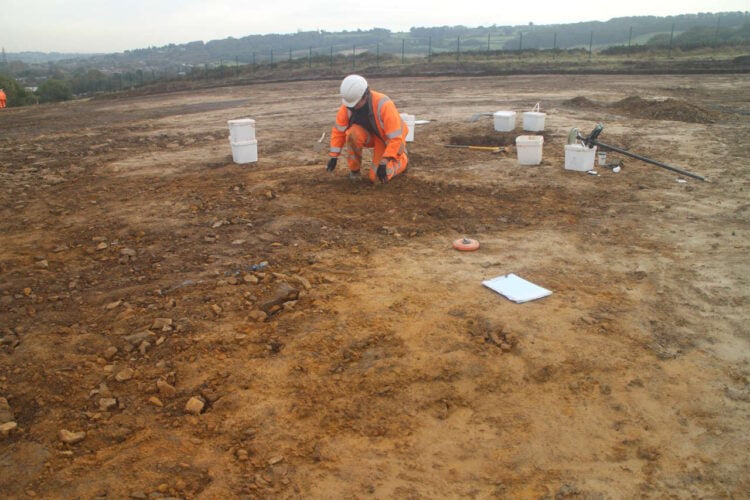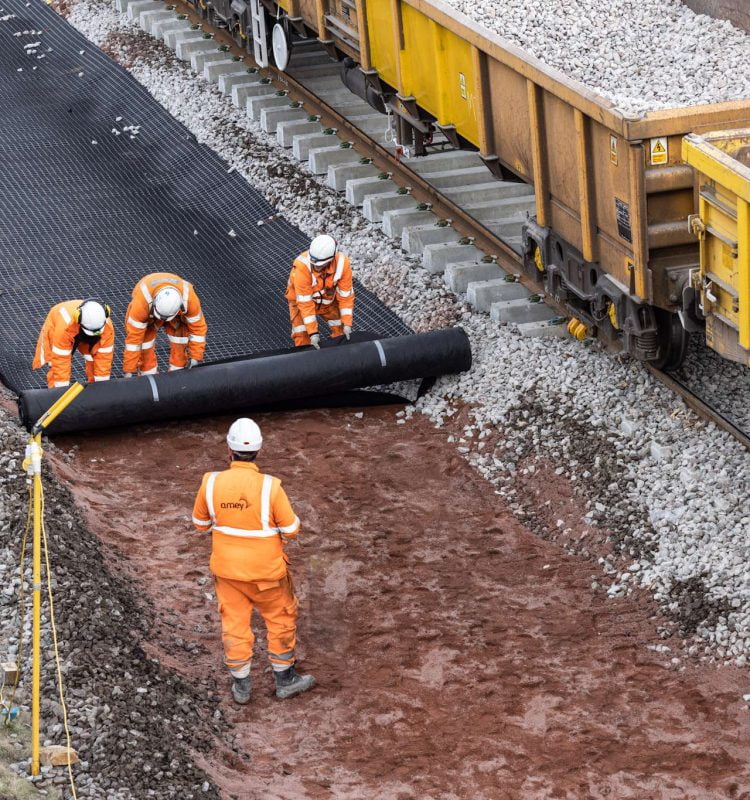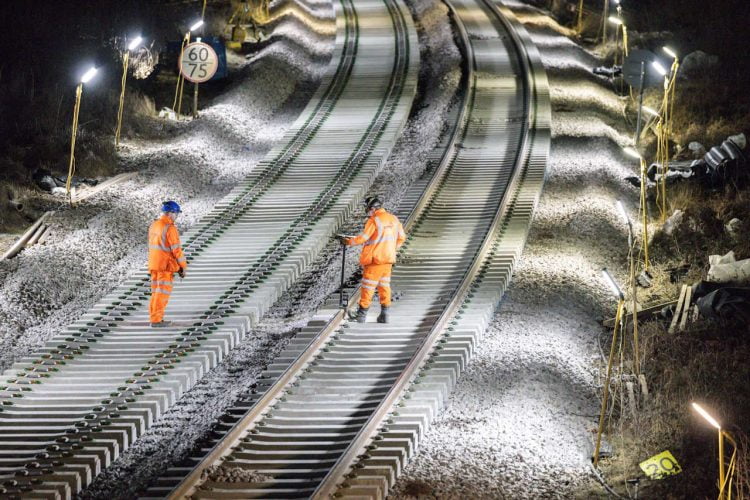While carrying out archaeological work before further work on the Transpennine Route Upgrade, a possible historic small settlement at Ravensthorpe near Dewsbury in West Yorkshire was found that could date back to Roman times.
Archaeologists from Oxford Archaeology North are investigating to multiple sites between Huddersfield and Dewsbury on the Upgrade route. Environmental samples of the discoveries are now being processed to discover the full extent of their findings. Archaeological fieldwork is necessary in certain areas of the Upgrade route so that any heritage assets found can be identified, understood, and safeguarded.

During excavations at Heaton Lodge and Thornhill Lees Farm, more common industrial post-medieval archaeology discoveries were found in the form of earthworks and other minor finds, with no significant remains.
Following initial work at Ravensthorpe, the discovery of a large, irregularly shaped cropmark that was thought to be of a prehistoric date prompted further investigation of the site. A geophysical survey undertaken last April suggested that with the cropmark being hexagonal and having internal penannular features, it was most likely to be either an Iron Age or Romano-British enclosure.

An archaeological evaluation showed that the enclosure was fairly substantial in size. This led to it being subject to a strip, map and record towards the end of the year. Although there were few artefactual remains, a collection of Romano-British ceramics, ceramic building materials, flint, glass, and animal bones were all recovered from the site.
A key step in being able to assess a possible date for the evidence, and to assist in developing a general understanding of the original purpose for the enclosure is now taking place in processing environmental samples collected at the site for the recovery of further artefacts and ecofacts.

Catherine O Doherty, Site Supervisor, said: We have a possible small-scale settlement with round house-like features and boundary ditches which yielded limited finds of a Roman date. This is interesting as sites such as this are limited in West Yorkshire, making this site an exciting discovery.





Responses
Costs of an archaelogical investigation are not factored into the initial pricing of the works other than as a Provisional Sum. The Contract documents cater for such a find and the Engineer and Employer will decide on the way forward, any contract extensions and cost awards.
Rob.
I was only thinking today how was it Roman finds in this area were not found.? Now some has, nice to find we were not left out.
Everybody is entitled to an opinion but all the other person did was state a fact!
Look at HS2 how much that has been spent on that and all the delays by the NIMBY groups!
But then the only bit ironically being done is where the most objections came from and those that wanted will not get it now, due to all the tunnelling now taking place at great extra cost.
But the people that cost this country billions are the NIMBY’s. Look how quick China builds there high speed rail then look what happens when our Government departments get involved? Delays and overspending but no one to take the blame and responsibility? But there all paid extortionatly well for failures?
Rodney the costs are already factored in as its a pre-requisite of the planning process. No find is.insignificant and your response shows how poorly Educated you are. Every minutae of evidence adds to our knowledge of our past. For example this site sounds in some parts similar to one i helped to excavate in 2000 at tarporley.
Rodney Kaye is entitled to his opinion, but there are very many people, like me, who are actually interested in our history and archaeological remains – so at least these can be excavated, photographed and searched for any artefacts and remains before being bulldozed out of existence.
And how much will this add to the cost and the delay to the project whilst the archaeologists dig around finding insignificant finds? This is a main reason why British projects are always overtime and over budget.
Finds may not be large , however the overall investigation and mapping of the site will preserve it. Then is safe for future generations to better understand our past .
In the scale of things investing time in this stops a permanent loss which can never be recovered